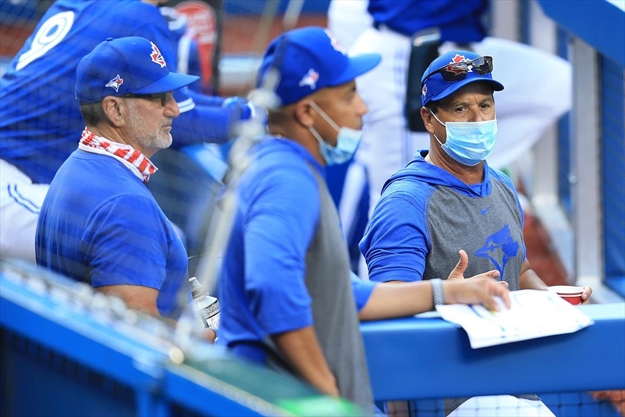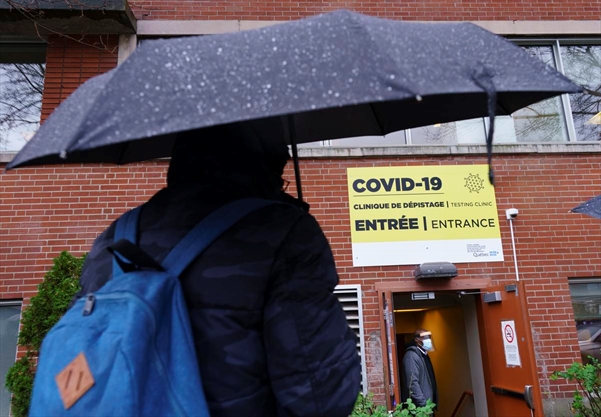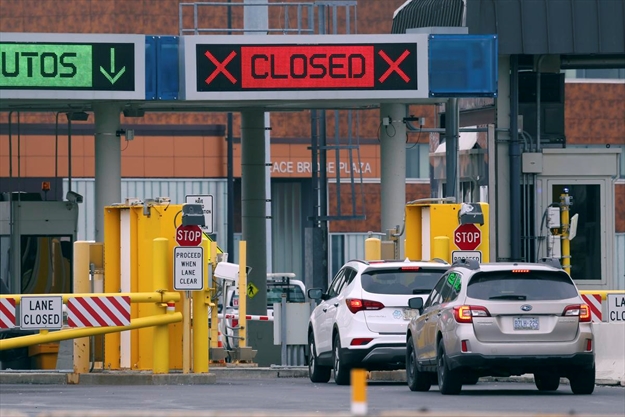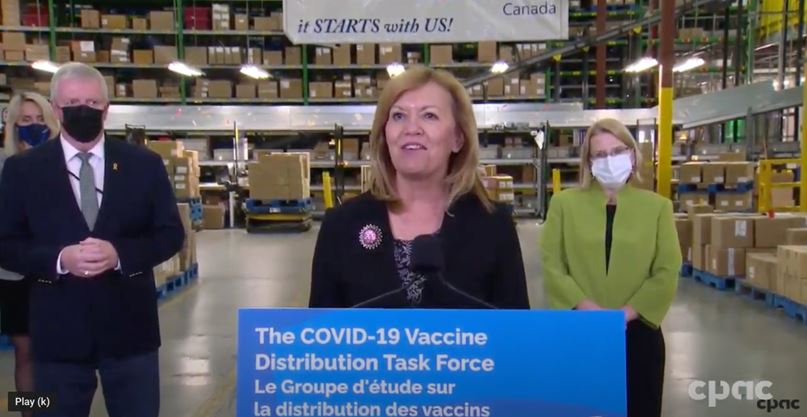Taking care of an infant while juggling work as a freelance writer would be stressful enough in a normal year. Add in the additional stress of the , and 39-year-old Ayano Hodouchi Dempsey feels much older.
“I feel old physically — backaches and stuff. And by the time my baby is in bed at 7:30 pm, I feel ready to go to bed myself!” she said.
Although Dempsey feels lucky to live in northwestern Ontario, where cases are relatively low, her extended family lives elsewhere and COVID-19 restrictions mean she hasn’t received the kind of support she would have normally.

People as young as in their twenties have told the Star they were initially shocked to discover streaks of grey in their hair, but once they thought more about it, they weren’t surprised.
A wide range of has shown that stress not only manifests in physical signs like greying hair, weight gain and body aches, extended stress can accelerate aging on a cellular level, by shortening the length of each DNA strand.
And when chronic depression is left untreated, cells of the immune system can change to make people more prone to diseases typically associated with old age, including heart disease, diabetes, osteoporosis and stroke, according to by a team of scientists at University of California San Francisco.
“I have had greying hair, lessened sleep and anxiety, back spasms from sitting, and migraines from (teaching) online Zoom classes. This is pretty normal among my social network,” says Peter, a 34-year-old university instructor in Montreal who requested anonymity because of concerns over job security.
Since the beginning of the pandemic, Quebec has been one of the hardest-hit provinces. But cases have surged across Canada as several provinces smashed daily infection records and the nationwide tally crested 4,000 on Sunday.
Peter has virtually spent the entire year in lockdown, and he knows that stress and isolation has taken a physical toll.
“I have only seen friends seven times during the entire year. I am unable to see my family as they live in a COVID hot zone in the United States. I have tried to be as productive as possible, but my productivity on projects has dramatically declined.
“There is nowhere to go, nothing to really do, nothing to plan for or look forward to,” he said.
The financial realities of the pandemic means that people are often well aware that their physical and mental health are suffering but feel a lack of control over their circumstances.
“I moved into a basement suite after we lost our house, right before COVID-19 hit, and it’s extremely dark. My sleep habits are pretty bad … and I’m having trouble focusing on work when I can’t go to cafes,” says Victoria Campbell, who is low-income and lives with a pre-existing disability.
“Housing is a struggle, and a major source of stress,” she told the Star. She had to cancel a gym membership because the uncertainty of the pandemic makes it unreasonable to pay an upfront fee. Instead, she swims laps at a pool, but has still gained weight.
On the other hand, Campbell suddenly feels less alone with her challenges because issues she has struggled with for years are suddenly much more common.
“It’s the first time in recent history that everyone has been part of the same anxiety cycle for such a protracted period of time,” she said.
This is all very concerning for Steve Joordens, a professor of psychology at University of Toronto Scarborough.
“Our stress response evolved to help us deal with so-called acute threats, threats like the emergence of a predator from the bushes. When that happens our body enters ‘fight or flee mode.’ The hormone cortisol is secreted causing our heart and lungs to work faster.”
“This reaction becomes a problem when a threat is chronic, when you can’t fight it, can’t flee it, and it just won’t go away,” Joordens told the Star.
When this happens, people get certain symptoms like fatigue, difficulty thinking through complex thoughts, greying hair and weight gain.
“Perhaps most concerning is a negative impact on our immune system. That is, we become more susceptible to the virus,” he said.
Is there anything we can do to lessen the stress and give our immune systems a fighting chance?
For one, if you’re noticing signs of aging beyond your time, don’t immediately assume that the culprit is stress.
“The first thing to do is go to a family doctor to at least get some routine examinations to rule out physical reasons why you’re experiencing symptoms,” says Vincent Agyapong, a professor of psychiatry at the University of Alberta.
“After that’s done, it’s reasonable to assume you are experiencing psychosomatic symptoms, so it’s good to seek mental health support … such as 24-hour hotlines offered for free by many provincial governments,” he said.
It might be easier said than done, but the key to taking care of yourself lies in taking it day by day.
Nobody has control over what happens in the future. But we can control what we do today. So have a plan each day that includes things that help your mental and physical health, Agyapong said.
For 54-year-old Allyson Barry, who has lived through years of traumatic events from abusive relationships that left her in “survival mode,” the resiliency she has gained through making it through to today has given her the perspective to weather the anxiety of the ongoing pandemic.
A year ago, Barry escaped homelessness only through the help of family and friends. She now works for the WISH Drop-in Centre, which supports the health and well-being of women who are involved in Vancouver’s street-based sex trade.
Now, Barry’s friends and family turn to her for support.
She tells them: “What happens during and after this pandemic does not rely upon what the government does, what the medical community does, or even what our neighbour does. It is all about you and only you. How you choose to proceed and see things is what will happen and what the outcome will be.”
“I know the bitterness and desire to lash out, I also know the importance of looking within myself and taking the steps to change those destructive feelings,” Barry told the Star.
She suggests people say to themselves: “This trial has zero bearing on my happiness or my future. My future and my happiness is up to me.”
With files from The Canadian Press
Joanna Chiu is a Vancouver-based reporter covering both Canada-China relations and current affairs on the West Coast for the Star. Follow her on Twitter:


















